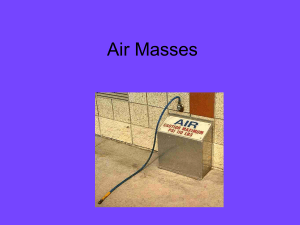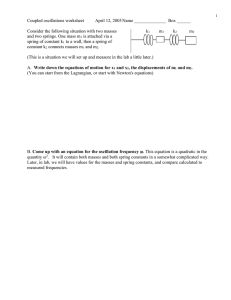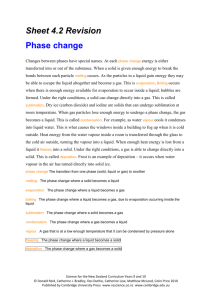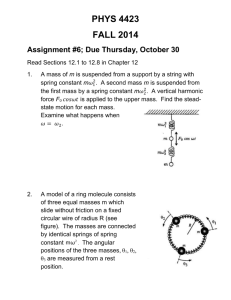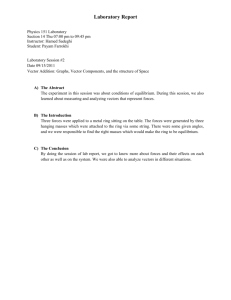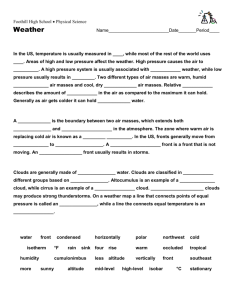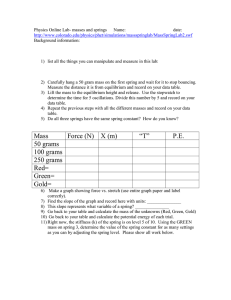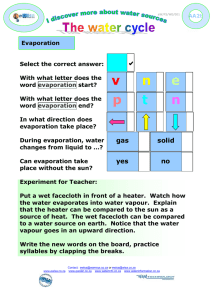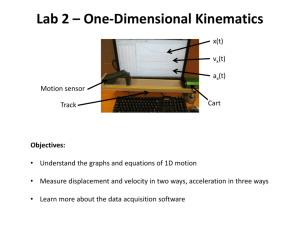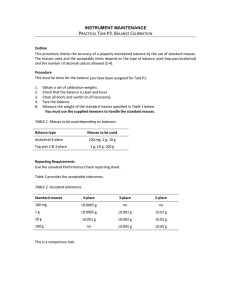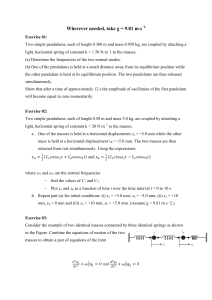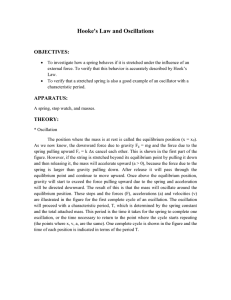Chemical equilibrium "the equilibrium constant"
advertisement
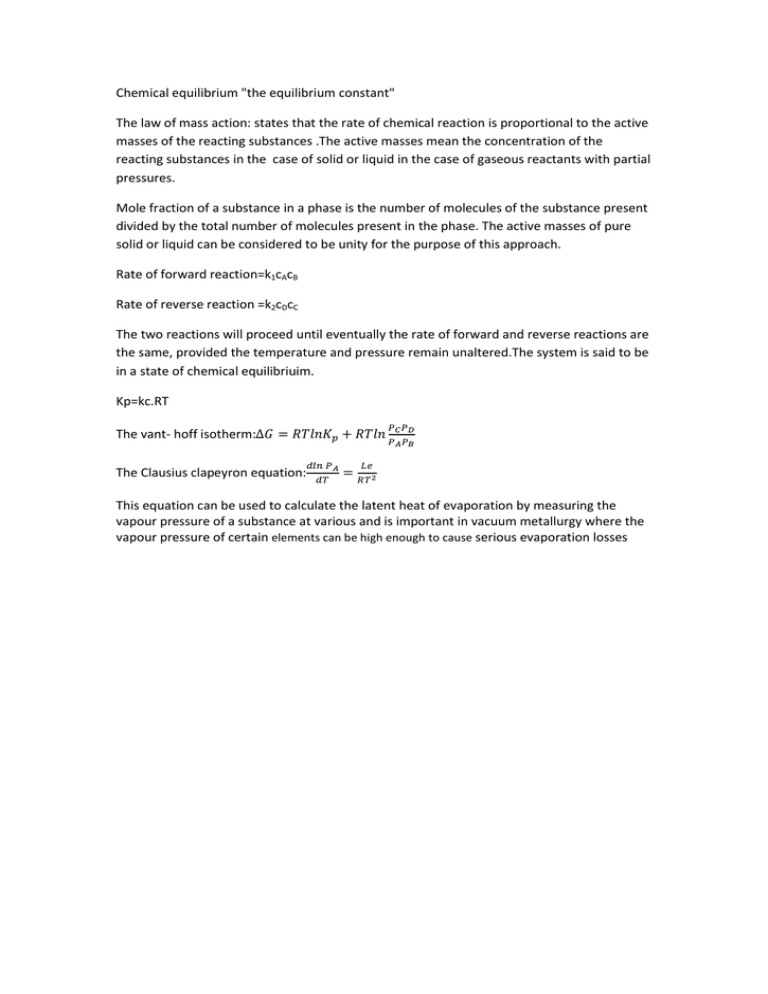
Chemical equilibrium "the equilibrium constant" The law of mass action: states that the rate of chemical reaction is proportional to the active masses of the reacting substances .The active masses mean the concentration of the reacting substances in the case of solid or liquid in the case of gaseous reactants with partial pressures. Mole fraction of a substance in a phase is the number of molecules of the substance present divided by the total number of molecules present in the phase. The active masses of pure solid or liquid can be considered to be unity for the purpose of this approach. Rate of forward reaction=k1cAcB Rate of reverse reaction =k2cDcC The two reactions will proceed until eventually the rate of forward and reverse reactions are the same, provided the temperature and pressure remain unaltered.The system is said to be in a state of chemical equilibriuim. Kp=kc.RT The vant- hoff isotherm: The Clausius clapeyron equation: This equation can be used to calculate the latent heat of evaporation by measuring the vapour pressure of a substance at various and is important in vacuum metallurgy where the vapour pressure of certain elements can be high enough to cause serious evaporation losses
